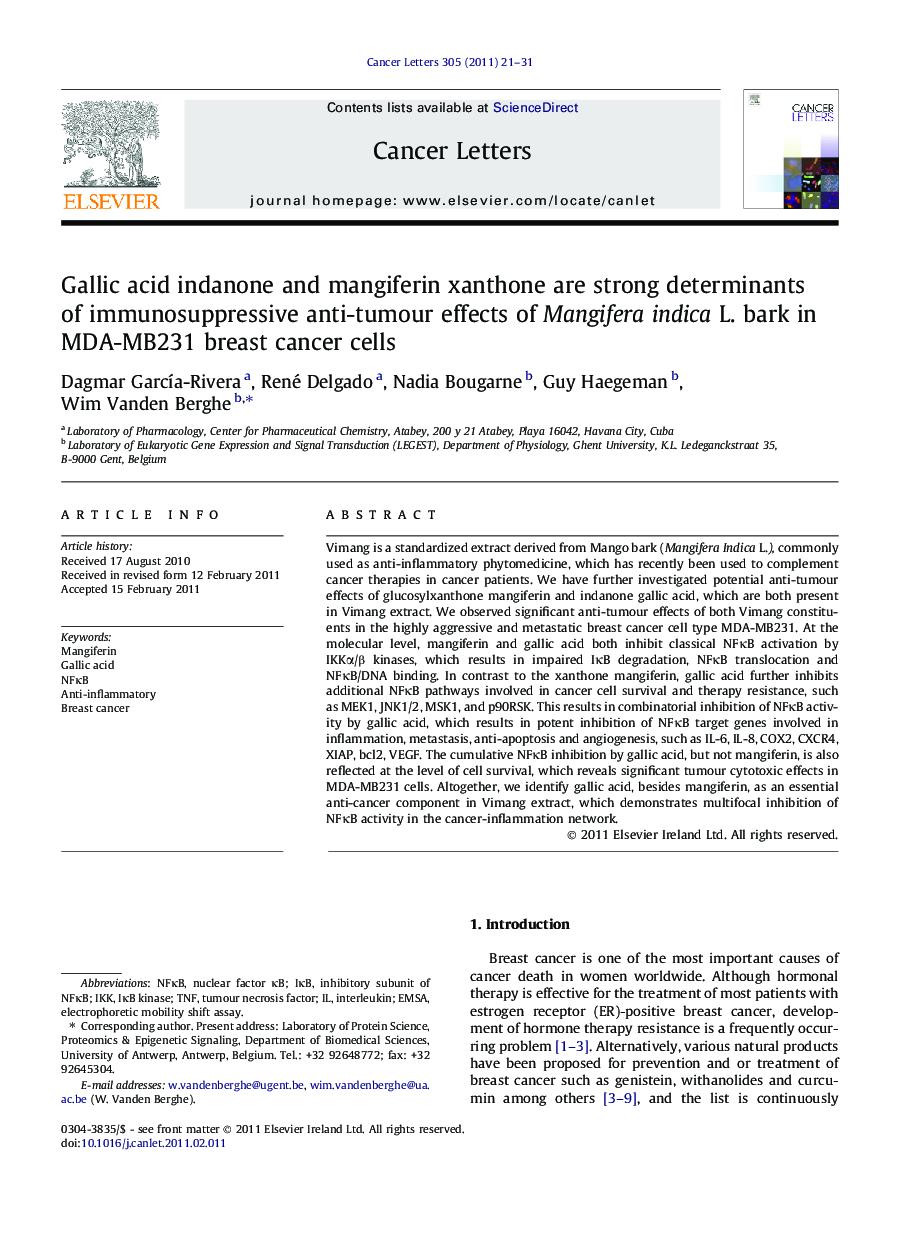| Article ID | Journal | Published Year | Pages | File Type |
|---|---|---|---|---|
| 2116397 | Cancer Letters | 2011 | 11 Pages |
Vimang is a standardized extract derived from Mango bark (Mangifera Indica L.), commonly used as anti-inflammatory phytomedicine, which has recently been used to complement cancer therapies in cancer patients. We have further investigated potential anti-tumour effects of glucosylxanthone mangiferin and indanone gallic acid, which are both present in Vimang extract. We observed significant anti-tumour effects of both Vimang constituents in the highly aggressive and metastatic breast cancer cell type MDA-MB231. At the molecular level, mangiferin and gallic acid both inhibit classical NFκB activation by IKKα/β kinases, which results in impaired IκB degradation, NFκB translocation and NFκB/DNA binding. In contrast to the xanthone mangiferin, gallic acid further inhibits additional NFκB pathways involved in cancer cell survival and therapy resistance, such as MEK1, JNK1/2, MSK1, and p90RSK. This results in combinatorial inhibition of NFκB activity by gallic acid, which results in potent inhibition of NFκB target genes involved in inflammation, metastasis, anti-apoptosis and angiogenesis, such as IL-6, IL-8, COX2, CXCR4, XIAP, bcl2, VEGF. The cumulative NFκB inhibition by gallic acid, but not mangiferin, is also reflected at the level of cell survival, which reveals significant tumour cytotoxic effects in MDA-MB231 cells. Altogether, we identify gallic acid, besides mangiferin, as an essential anti-cancer component in Vimang extract, which demonstrates multifocal inhibition of NFκB activity in the cancer-inflammation network.
